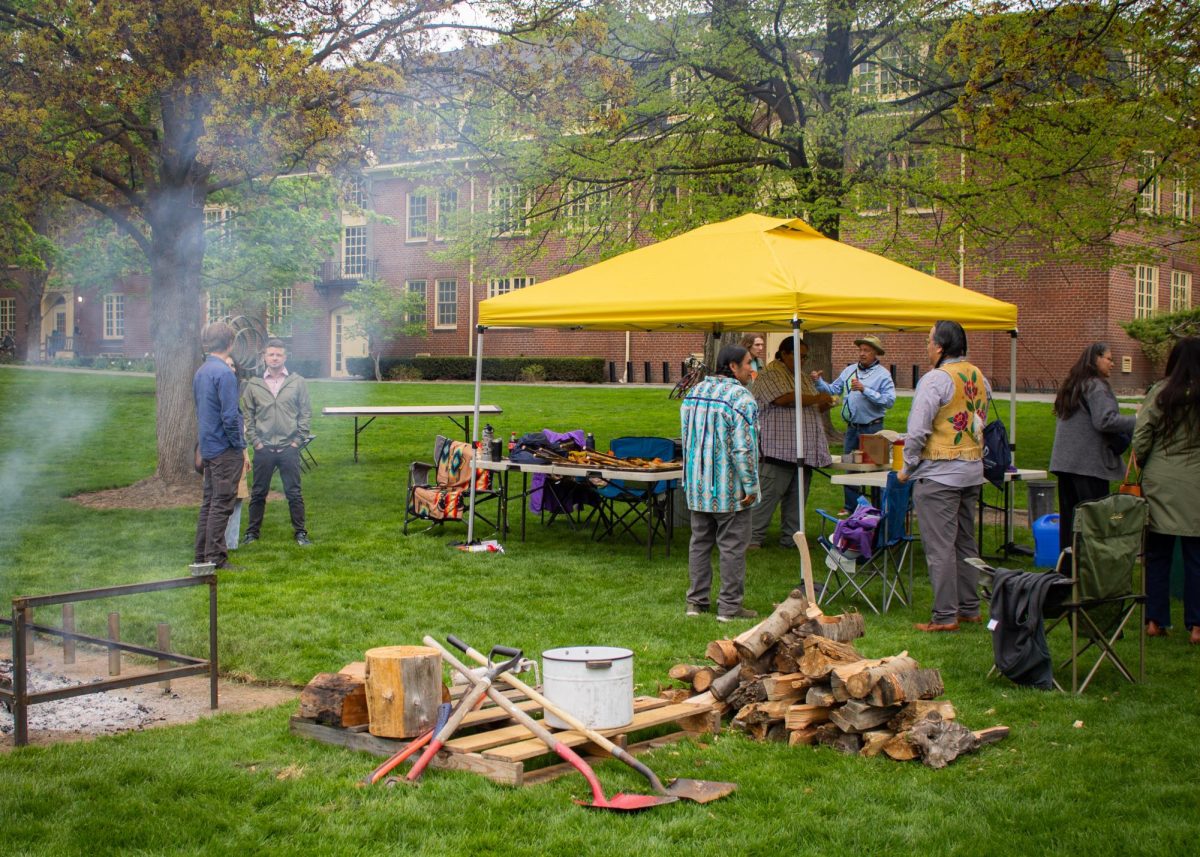
Jean Carwile Masteller
When Professor Jean Carwile Masteller and her husband, Professor Rick Masteller, joined the English department at Whitman in 1978, they filled the first-ever shared position on faculty. At the time, Carwile Masteller recalled, the appointment was so unusual that newspapers in Walla Walla, Spokane and Seattle all covered it.
“Hard to believe we caused such a buzz then,” she said.
Upon arriving at Whitman, Carwile Masteller also found herself in the unique position of being one of only five tenure-track female faculty members. No courses on women’s studies were offered through any department. During her first year teaching, however, students started a petition requesting that the English department offer a course on women. Carwile Masteller, whose dissertation was focused on American women writers, also proposed a course.
The following year, Carwile Masteller taught what she believes to be the first course of its kind at Whitman, and the year after that offered a course called “Growing up Female” as part of the first-year seminars program.
“I’m proud of both of these moves to expand the curriculum,” she said.
Carwile Masteller received her B.A. with Honors from Lynchburg College, her M.A. in English from the University of Virginia, and her Ph.D. in American studies from the University of Minnesota. Her specialties are American literature and culture, particularly of the nineteenth century, women’s literature and the relationship between canonical and popular culture. She has published works on Henry David Thoreau and Andrew Jackson Downing, among others, and has contributed to the Emily Dickinson Encyclopedia.
Last year, Carwile Masteller was diagnosed with breast cancer. Despite her ongoing treatments, which will conclude in June, she continued teaching while spearheaded the creation of two separate funds at Providence St. Mary Medical Center in Walla Walla to finance mammograms and other services for patients who cannot afford them. She called on the English department to support her community service effort, inspiring several students to participate.
“After this year, I will miss the daily contact with students who give me enormous energy,” Carwile Masteller said. “This year that support and energy has been not just intellectual, but also personal as students, faculty and staff have given me strength. I will miss the students but look forward to the letters, cards, e-mails, phone calls, and visits that I hope will continue.”
With the responsibilities of teaching behind her, Carwile Masteller plans to devote her attention to the “boxes of research materials that call” and a new project on the musical settings of Emily Dickinson, a top priority. Her orchids will also be receiving some extra care.
“I will try to revive my orchid collection that suffered this year with inconsistent attention,” she said. “I lost half of my orchids, but I’m already starting to rebuild the collection. Then, too, the garden calls for renovation. So in many ways I plan ‘to cultivate my garden.'”
Richard N. Masteller
Looking back on his three decades at Whitman, Professor Rick Masteller does not think in terms of the big accomplishments, although he has many: pioneering Whitman’s first shared faculty position with his wife, Professor Jean Carwile Masteller, in 1978, or receiving the Smithsonian Visiting Scholar’s Grant, to name just a few.
Rather, he frames his reflection through a passage from Virginia Woolf’s To The Lighthouse, which, true to his English professor instincts, he diligently “unpacks.”
“As she struggles to complete her painting while simultaneously reflecting on her long association with the Ramsays, Lily Briscoe, the artist-protagonist of the novel, thinks: ‘What is the meaning of life?'” Masteller quoted. “‘That was all: a simple question: one that tended to close in on one with years. The great revelation had never come. The great revelation perhaps never did come. Instead there were little daily miracles, illuminations, matches struck unexpectedly in the dark.'”
Masteller received his B.A. with Distinction from the University of Rochester, his M.A. in English from the University of Virginia and his Ph.D. in American Studies from the University of Minnesota. While studying at the University of Virginia, Masteller met his future wife and colleague with whom he would later share an office at Whitman (still Carwile Masteller’s current office). Both taught at Illinois State University and the University of Minnesota before coming to Whitman; appropriately, he proposed to her in the Edgar Allen Poe Garden.
With his specialty in 20th century American literature, Masteller taught a wide array of courses covering 1600-present, as well as seminars and photography courses. His published essays concern the America purveyed by western stereographs of the late 19th century, modernism and the sculptor Constantin Brancusi, the satiric vision of John Dos Passos and Reginald Marsh, and rural architecture in the works of Andrew Jackson Downing and Henry David Thoreau. Masteller’s artistic expertise enabled him to offer an innovative array of interdisciplinary English courses, such as The Harlem Renaissance, The Shaping Spirit and The American City: Image and Experience.
Like Carwile Masteller, he intends to pursue unfinished research projects after concluding his career at Whitman. Photography and pleasure reading are also on the agenda.
“I’ll still be here, digging into the boxes of materials I’ve amassed over the years,” he said. “I’ll pick up my own camera: and, yes, play with Photoshop. And I’ll turn to read again some of the poetry and fiction I’ve enjoyed before, as well as many texts I’ve not had time to open.”
In recalling his experiences with Whitman students, Masteller again conjures up Virginia Woolf.
“We’ve all had various amounts of darkness in recent years; I’m cheered by the fact that students themselves continue to bring illumination, sometimes striking matches unexpectedly in the dark.”








